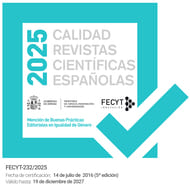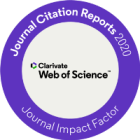Intégrer un interprète dans les consultations de médecine familiale : une analyse de discours assistée par ordinateur
Resumen
Exploramos las representaciones del trabajo con intérpretes entre médicos de familia en Quebec. Se organizaron focus groups (FG) con estudiantes de tercer año de Medicina (6, N= 22), médicos resi-dentes (4, N= 29) y médicos en ejercicio (5, N= 47). Preparamos tres vídeos con consultas médicas con intérprete. Se presentó a cada FG dos de los vídeos, que se comentaron de forma separada. Los resultados hacen explícitos distintos discursos. Los estudiantes parecen más preocupados por la relación médico-paciente, mientras que los médicos se concentran en la información. El discur-so de los residentes señala cuestiones relacionadas con la formación de la identidad. Los resultados se analizaron a la luz de la teoría de la comunicación de Habermas.
Citas
BEAGAN, Brenda L. (2001) : « "Even if I don't know what I'm doing I can make it look like I know what I'm doing" : Becoming a doctor in the 1990s ». The Canadian Review of Sociology and Anthropology 38(3), 275-292.
BEAGAN, Brenda L. (2003) : « Teaching social and cultural awareness to medical students : "it's all very nice to talk about it in theory, but ultimately it makes no difference" ». Academic Medicine 78(6), 605-614.
BEAUD, Jean-Pierre (2009) : « L’échantillonnage », in B. Gauthier (éds.), Recherche sociale : de la problématique à la collecte des données. Québec, Presses de l'Université du Québec, 251-283.
BRISSET, Camille, Yvan LEANZA et Karine LAFOREST (2013) : « Working with interpreters in health care, A systematic review and synthesis of qualitative literature ». Patient Edu¬cation and Counseling 91(2), 131-140.
BURBANO O'LEARY, Sonja C., Steven FEDERICO et Louis C. HAMPERS (2003) : « The truth about language barriers : one residency program's experience ». Pediatrics 111(5), 569-573.
COHEN, Suzanne, Jo MORAN-ELLIS et Chris SMAJE (1999) : « Children as informal inter-preters in GP consultations : pragmatics and ideology ». Sociology of health and illness 21(2), 163-186.
COULEHAN, Jack et Peter C. WILLIAMS (2001) : « Vanquishing virtue : the impact of medi-cal education ». Academic Medicine 76(6), 598-605.
DAVIDSON, Brad (2000) : « The interpreter as institutional gatekeeper : the social-linguistic role of interpreters in Spanish-English medical discourse ». Journal of Sociolinguistics 4(3), 379-405.
DIAMOND, Lisa C., Yael SCHENKER, Leslie CURRY, Elizabeth H. BRADLEY et Alicia FER-NANDEZ (2009) : « Getting by : underuse of interpreters by resident physicians ». Journal of General Internal Medicine 24(2), 256-262.
FATAHI, Nabi, Mikael HELLSTROM, Carola SKOTT et Bengt MATTSSON (2008) : « General practitioners' views on consultations with interpreters : a triad situation with com-plex issues ». Scandinavian Journal of Primary Health Care 26(1), 40-45.
HABERMAS, Jürgen (1987) : Théorie de l'agir communicationnel. Paris, Fayard.
HAMPERS, Louis C., Susie CHA, David J. GUTGLASS, Helen J. BINNS et Steven E. KRUG (1999) : « Language barriers and resource utilization in a pediatric emergency de-partment ». Pediatrics 103(6), 1253-1256.
HATTON, Diane C. et Teresa WEBB (1993) : « Information transmission in bilingual, bicul-tural contexts : a field study of community health nurses and interpreters ». Journal of Community Health Nursing 10(3), 137-147.
HSIEH, E. (2010) : « Provider-interpreter collaboration in bilingual health care : Competi-tions of control over interpreter-mediated interactions ». Patient Education and Counsel-ing 78(2), 154-159.
HUDELSON, Patricia et Sarah VILPERT (2009) : « Overcoming language barriers with for-eign-language speaking patients : a survey to investigate intra-hospital variation in at-titudes and practices ». BioMed Central Health Services Research 9(187) [en ligne : http://www.biomedcentral.com/content/pdf/1472-6963-9-187.pdf ; 28/12/2013].
KAI, Joe, Ruth BRIDGEWATER et John SPENCER (2001) : « "Just think of TB and Asians, that's all I ever hear" : medical learners' views about training to work in an ethnically diverse society ». Medical Education 35(3), 250-256.
KALET, Adina L., Debjani MUKHERJEE, Karla FELIX, Sarah E. STEINBERG, Martin NACHBAR, Amy LEE, Joytsna CHANGRANI et Francesca GANY (2005) : « Can a web-based curriculum improve students' knowledge of, and attitudes about, the in-terpreted medical interview ? ». Journal of General Internal Medicine 20(10), 929-934.
KARTER, Andrew J., Assiamira FERRARA, Jeanne A. DARBINIAN, Lynn M. ACKERSON et Joe V. SELBY (2000) : « Self-monitoring of blood glucose : language and financial barriers in a managed care population with diabetes ». Diabetes Care 23(4), 477-483.
LABUN, Evelyn (1999) : « Shared brokering : the development of a nurse/interpreter part-nership ». Journal of Immigrant Health 1(4), 215-222.
LAFON, Pierre (1980) : « Sur la variabilité de la fréquence des formes dans un corpus ». Mots, 1, 127-165.
LEANZA, Yvan (2005) : « Roles of community interpreters in pediatrics as seen by inter-preters, physicians and researchers ». Interpreting 7(2), 167-192.
LEANZA, Yvan (2008) : « Community Interpreter's Power. The Hazards of a Disturbing Attribute ». Curare 31(2), 211-220.
LEANZA, Yvan (2011) : Exercer la pédiatrie en contexte multiculturel. Une approche complémentariste du rapport institutionnalisé à l'Autre. Genève, Georg éditeur.
LEANZA, Yvan et Isabelle BOIVIN (2007) : « Interpréter n'est pas traduire. Enjeux de pou-voir autour de l'interprétariat communautaire », in M. A. Broyon, Actes en ligne du col-loque international : L’éducation en contextes pluriculturels : la recherche entre bilan et prospectives [en ligne : http://www.unifr.ch/ipg/assets/files/DocSSRE/07%20GE/LeanzaY-BoivinI.pdf ; 28/12/2013].
LEANZA, Yvan, Isabelle BOIVIN et Ellen ROSENBERG (2010) : « Interruptions and re-sistance : A comparison of medical consultations with family and trained interpret-ers », Social Science & Medicine 70(12), 1888-1895.
LEBART, Ludovic (1989) : « Stratégies du traitement des données d’enquêtes ». La revue de Modulad 3, 21-29.
LEBART, Ludovic, André SALEM et Lisette BERRY (1998) : Exploring textual data. Dor-drecht/Boston, Springer.
LEE, Karen C., Jonathan P. WINICKOFF, Minah K. KIM, Eric G. CAMPBELl, Joseph R. BETANCOURT, Elyse R. PARK, Angela W. MAINA et Joel S. WEISSMAN (2006) : « Resident physicians' use of professional and nonprofessional interpreters : a na-tional survey ». The Journal of American Medical Association 296(9), 1050-1053.
LIE, Désirée, Sylvia BEREKNYEI, Adina KALET et Clarence H. BRADDOCK (2009) : « Learning outcomes of a web module for teaching interpreter interaction skills to pre-clerkship students ». Family Medicine 1(4), 234-235.
LIE, Désirée, Sylvia BEREKNYEI, Clarence H. BRADDOCK, Jennifer ENCINAS, Susan AHEARN et John R. BOKER (2009) : « Assessing medical students' skills in working with interpreters during patient encounters : a validation study of the Interpreter Scale ». Academic Medicine, 84(5), 643-650.
LIE, Désirée, Sylvia BEREKNYEI et Charles P. VEGA (2010) : « Longitudinal development of medical students' communication skills in interpreted encounters ». Education for Health (Abingdon) 23(3), 466.
LIE, Désirée, John BOKER, Sylvia BEREKNYEI, Susan AHEARN, Charlotte FESKO et Patricia LENAHAN (2007) : « Validating measures of third year medical students' use of interpreters by standardized patients and faculty observers ». Journal of General In-ternal Medicine 22(2), 336-340.
MARTINEZ, William (2003) : « Contribution à une méthodologie de l'analyse des cooccur-rences lexicales multiples dans les corpus textuels ». Mémoire de thèse sous la direc-tion d’André Salem, Université de Sorbonne Nouvelle.
MCEVOY, Mimi, Maria Teresa SANTOS, Maria MARZAN, Eric H. GREEN et Felise B. MI-LAN (2009) : « Teaching medical students how to use interpreters : a three year expe-rience ». Medical Education Online 14(12). [en ligne : http://www.ncbi.nlm.nih.gov/-pmc/articles/PMC2779621 ; 28/12/2013].
MISHLER, Elliot George (1984) : The discourse of medicine. Dialectics of medical interviews. Nor-wood, Ablex Publishing Corporation.
MONROE, Alicia D. et Taraneh SHIRAZIAN (2004) : « Challenging linguistic barriers to health care : Students as medical interpreters ». Academic Medicine 79(2), 118-122.
POTTIE, Kevin, Edward Ng, Denise SPITZER, Alia MOHAMMED et Richard GLAZIER (2008) : « Language proficiency, gender and self-reported health : an analysis of the first two waves of the longitudinal survey of immigrants to Canada ». Canadian Jour-nal of Public Health 99(6), 505-510.
PRATT, Michael G., Kevin W. ROCKMANN et Jeffrey B. KAUFMANN (2006) : « Constructing professional identity : The role of work and identity learning cycles in the customi-zation of identity among medical residents ». Academy of Management Journal 49, 235-262.
REINERT, Max (1990) : « Alceste, une méthodologie d'analyse des données textuelles et une application : Aurelia de Gérard de Nerval ». Bulletin de méthodologie sociologique 26(1), 24-54.
RODRIGUEZ, Fatima, Amy COHEN, Joseph R. BETANCOURT et Alexander R. GREEN (2011) : « Evaluation of medical student self-rated preparedness to care for limited English proficiency patients ». BioMed Central Medical Education 11(26). [en ligne : http://www.biomedcentral.com/1472-6920/11/26 ; 28/12/2013].
ROSE, Danielle E., Diana M. TISNADO, Jennifer L. MALIN, May L. TAO, Melinda A. MAG-GARD, John ADAMS, Patricia A. GANZ et Katherine L. KAHN (2010) : « Use of in-terpreters by physicians treating limited English proficient women with breast can-cer : results from the provider survey of the Los Angeles Women's Health Study ». Health Services Research 45(1), 172-194.
ROSENBERG, Ellen, Yvan LEANZA et Robbyn SELLER (2007) : « Doctor-patient commu-nication in primary care with an interpreter : Physician perceptions of professional and family interpreters ». Patient Education and Counseling 67(3), 286-292.
ROUANET, Henry, Jean-Marc BERNARD et Bruno LECOUTRE (1986) : « Nonprobabilistic Statistical Inference : A Set-Theoretic Approach ». The American Statistician 40(1), 60-65.
ROUANET, Henry et Marie-Claude BERT (1998) : « Introduction to Combinatorial Infer-ence », in H. Rouanet, J.-M. Bernard, M.-C. Bert, B. Lecoutre, M.-P. Lecoutre et B. L. Roux (éds.), New ways in statistical methodology : from significance tests to Bayesian inference. Bern/New York, Peter Lang, 97-122.
SARVER, Joshua et David W. BAKER (2000) : « Effect of language barriers on follow-up appointments after an emergency department visit ». Journal of General Internal Medicine 15(4), 256-64.
SCAMBLER, Graham (2001) : Habermas, critical theory and health. London, Routledge.
SINGY, Pascal et Patrice GUEX (2005) : « The interpreter's role with immigrant patients: contrasted points of view ». Communication & Medicine 2(1), 45-51.
SLEED, Michelle, Kevin DURRHEIM, Anita KRIEL, Vernon SOLOMON et Veronica BAXTER (2002) : « The effectiveness of the vignette methodology : A comparison of written and video vignettes in eliciting responses about date rape ». South African Journal of Psychology 32(3), 21-28.
THOMPSON, Darcy A., Raquel G. HERNANDEZ, John D. COWDEN, Stephen D. SISSON et Margaret MOON (2013) : « Caring for patients with limited English proficiency : are residents prepared to use medical interpreters? ». Academic Medicine 88(10), 1485-1492.
WOLOSHIN, Steven, Lisa M. SCHWARTZ, Steven J. KATZ et H. Gilbert WELCH (1997) : « Is language a barrier to the use of preventive services ? ». Journal of General Internal Me¬di-cine 12(8), 472-477.
YANG, Chwan-Fen et Ben GRAY (2008) : « Bilingual medical students as interpreters. What are the benefits and risks ? ». New Zealand Medical Journal 121(1282), 15-28.
YAWMAN, Daniel, Scott MCINTOSH, Diana FERNANDEZ, Peggy AUINGER, Marjorie ALLAN et Michael WEITZMAN (2006) : « The use of Spanish by medical students and residents at one university hospital ». Academic Medicine 81(5), 468-473.
ZABAR, Sondra, Kathleen HANLEY, Elizabeth KACHUR, David STEVENS, Mark D. SCHWARTZ, Ellen PEARLMAN, Jennifer ADAMS, Karla FELIX, Mack LIPKIN, Jr. et Adina KALET (2006) : « "Oh ! She doesn't speak English !" Assessing resident competence in managing linguistic and cultural barriers ». Journal of General Internal Medicine 21(5), 510-3.










